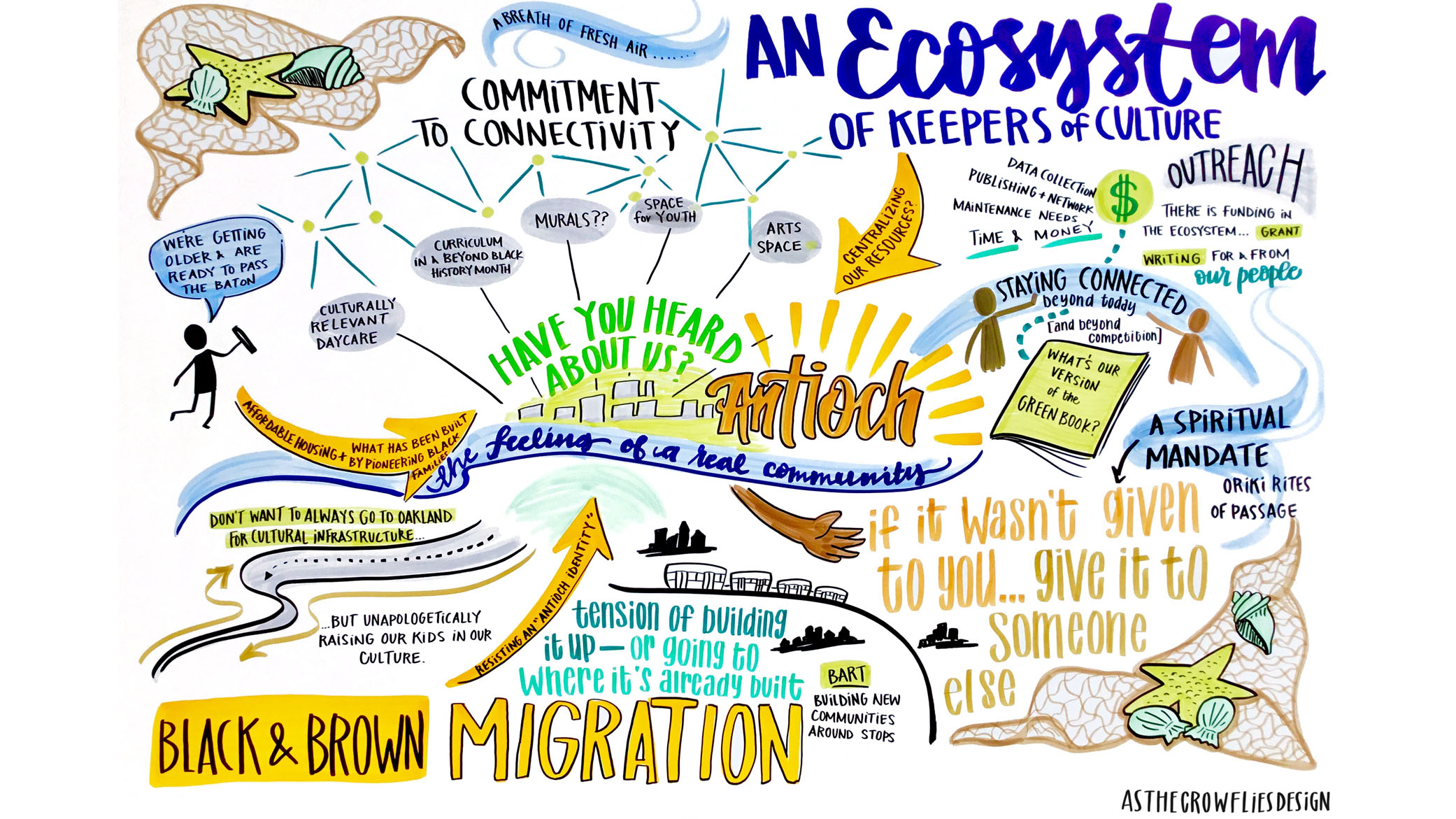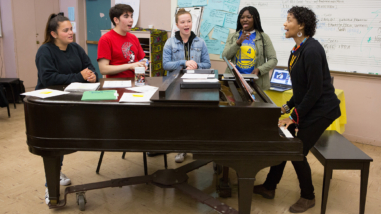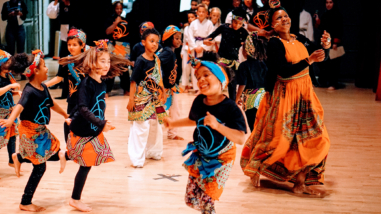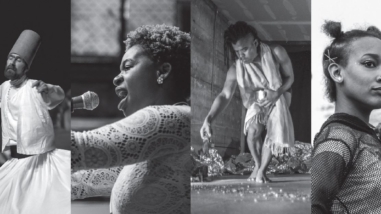What we heard during our Performing Arts listening circles

Over the past few months, the Hewlett Foundation’s Performing Arts Program helped coordinate six listening circles to better understand the perspective of artists, cultural workers, and creative entrepreneurs in communities around the Bay Area that have been underserved by our arts grantmaking. Each circle was convened by a host with deep ties to the community. The following is a letter we sent to the listening circles’ hosts and participants expressing our gratitude, describing what we heard, and how we will incorporate their perspectives into our refreshed grantmaking strategy, which the Performing Arts Program will present to our board in July.
To the hosts and participants of our six learning circles,
On behalf of the Hewlett Foundation Performing Arts Program, thank you for your participation in a listening circle earlier this spring. Your willingness to share your thoughts with other community members, and to allow us to listen and learn, has provided us with an incredibly rich source of knowledge and inspiration for our work. The openness and candor you brought to those conversations, your willingness to share glimpses of profound motivations and challenges, and the spirit of hope for change—present in all six conversations—is not lost on us.
As you may recall, the discussion you took part in was one of six listening circles that took place in March and April of this year. The host for each circle selected the participants based on their own logic and instincts. The participants—all artists who embody leadership in some form—brought and shared perspectives informed by multiple identities and experiences they carry with them: African-American, Arab-American, Indigenous, Latinx, and LGBTQ+ artists; experiences of migration; and deep consideration of intergenerational knowledge, to name just a few.
I’m writing now to share what we heard across all of the circles and what questions it has prompted. One thing we heard clearly in all six of the listening circles was the importance of the relationships between your artistic practices, your holistic and individual identities, and the places in which you live. For some, these connections were about your own community, its presence in a certain place, and your deep desire to be of service. For others, these connections were rooted in and inseparable from your people’s culture, stories, and practices. And for others it was about diaspora, or a distance from home that led to a feeling (and in most cases, a physical) displacement from a culture in which you felt visible and respected.
We heard many inspiring stories of the artistic and cultural practices you value, and how local systems of support, including arts philanthropy, have repeatedly failed to understand or recognize these values. These stories echo field-wide data showing the disproportionate, and ongoing, flow of philanthropic dollars for the arts toward urban centers and large, longstanding institutions.
Alongside the richness of artistic and cultural practices you and your communities uphold, we also heard, loud and clear, the challenges you face around various forms of scarcity. From space and wages to support services and advocacy partners, sustaining your artistic and cultural practice has never been easy. We also sense that some of these challenges are growing more complicated amid the dramatic socio-economic changes taking place in the Bay Area. We were heartened, though, by the intensity of your dedication to community, to youth, to solidarity, and to ongoing learning and partnership.
As we continue to reflect on these listening circles and refresh the strategy of our Performing Arts Program, we are asking ourselves a set of questions: How can we better support cultural communities and their self-determination? What actions can we take now to help seed a better future for the cultural vibrancy of our region? How can we better serve communities our funding has not previously reached, without introducing unintended harms? How can we continuously learn and evolve our work to help bring about meaningful, socially beneficial change for artists and communities?
We don’t pretend to have the answers to these questions. But we are committed to seeking answers to them, because we believe those answers are critical to achieving our central aim of supporting arts that are meaningful to the people of the Bay Area. We also recognize this is a journey that many of you have been on for years—for generations in some cases—and that we have much more to learn from you. We are grateful to each of you for your generosity, and for your work on behalf of artists and your communities. As it feels right to you, we invite you to stay connected with us as we begin to evolve our grantmaking strategies later this year. If you’d like to be added to our email list sign up below, or otherwise be in touch, we welcome it.
With gratitude,
Emiko Ono
Program Director, Performing Arts
SIGN UP FOR PERFORMING ARTS UPDATES
Sign up for our email newsletter to receive updates about our Performing Arts Program.
Subscribe



